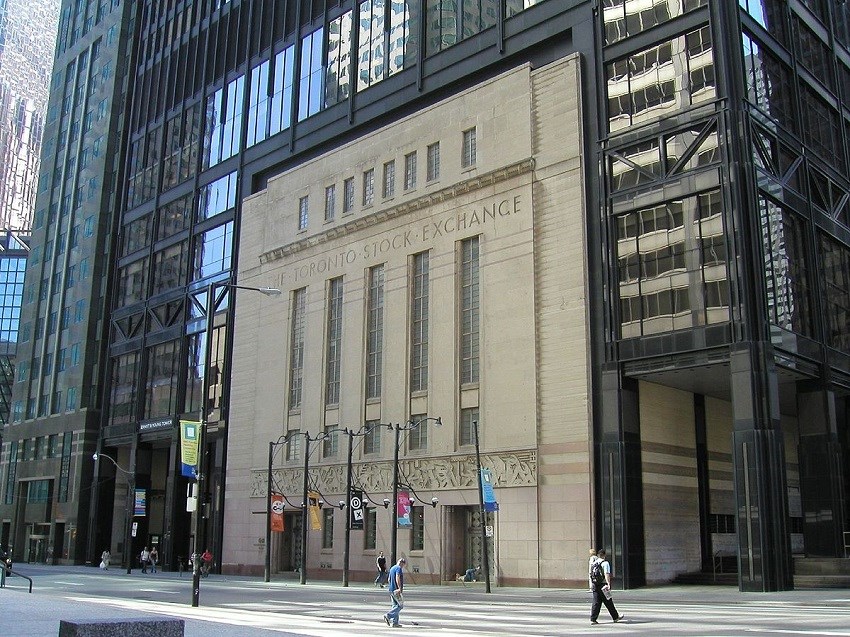
In August, Airbnb submitted documentation to the US regulator to take its shares public. This is an important step in the company’s initial public offering, or IPO.
Some 36 companies were scheduled to make their shares public to investors in the second half of September alone. This includes pharmaceutical price provider GoodRx on September 23 and project management software provider Asana on September 30.
IPOs are a crucial step in becoming a public company. What are they, and how do they work?
What is an IPO?
An IPO is a process that a private company undertakes to become public. Almost all companies start as privately funded, receiving money from founders, friends, and family. Once the company has a strategic business plan, it can apply for small-business loans and venture capital funding.
However, these private funding sources will eventually run out for a growing company. The company then looks for alternative capital to reinvest in its business. A common next step is to look for public funding by making shares available to public investors through an IPO.
What Are Advantages of an IPO?
The most important reason for going public is access to funding. Institutional and individual investors can buy public shares of the company’s stock to help finance business reinvestment. In return, investors are potentially rewarded with a share of the company’s earnings and dividends.
Another IPO benefit is alternative funding sources. Part of going public is disclosing a company’s financial information, making revenue sources and costs more transparent. This helps a company apply for loans more easily.
IPOs are also helpful when one company wants to acquire another. In exchange for purchasing the other business, the company can offer shares of its own stock.
In addition, they allow the company to enhance its employee compensation plan. Public companies can offer stock options to employees in addition to a salary, benefiting those who started early in the company’s history.
Going public also helps the company’s brand awareness. It’s a very public event, and the company can boost its prestige by listing on a popular exchange, like the New York Stock Exchange, the Toronto Stock Exchange, or Nasdaq.
How does an IPO Work?
Step One: Selecting an investment bank to manage the IPO process. These banks include companies like JPMorgan Chase (JPM) and Goldman Sachs (GS). Their main objective is to round up buyers interested in purchasing the company’s stock. They gauge interest in the IPO and market the stock to institutional investors. They will also assemble a team, including accountants, lawyers, and regulatory experts, to handle different parts of the IPO.
Step Two: Due dilligence. This involves collecting financial documents, completing SEC regulation forms, and publicising the business model, risks, and competition. This is also when the company assembles the board of directors, the team responsible for protecting shareholder interests and holding the company leadership accountable.
Step Three: the regulator approves the IPO. This includes the investment bank and company agreeing to an IPO date, how many shares will be available to the public, and the price for each share. Once the details are settled, the investment bank will distribute financial information to potential investors.
Step Four: Going public. The company is listed on the exchange and begins trading on the open market. The share price agreed upon by the company and investment bank can now fluctuate based on supply and demand forces.
What Are Disadvantages of IPOs?
Fees are the biggest concern companies have when going public. Investment bank services aren’t cheap, and the costs to maintain financial, legal, and regulatory teams are steep. And these are just the costs to do an IPO - there are others to maintain a public presence. Financial reporting, auditing, and regulation costs will be constant once the company’s stock is available to public investors.
Regulation is a big concern, and for good reason. A regulator's goal is to protect investors, so it wants companies to present accurate and complete information. Intense scrutiny from this regulatory agency won’t go away, so these companies must be prepared to meet their guidelines.
Another issue for company leadership is pressure from shareholders and the board of directors. Because these groups now influence the company’s direction, they might force leaders to move the business in a way the leaders didn’t intend.
Going public can be distracting for company leadership. Driven to increase stock performance, executives might drift away from their company’s mission and engage in unrelated initiatives or questionable corporate behavior.
What do IPOs Mean for Investors?
Once a company becomes public, it makes sense to wonder if that stock is right for investors. We recommend waiting a few months until the stock’s price stabilises, but each IPO is different, says Morningstar’s director of investor education Karen Wallace. If the stock’s price is less than Morningstar’s fair value estimate, it could be worth considering.
This article first appeared on Morningstar.com




















